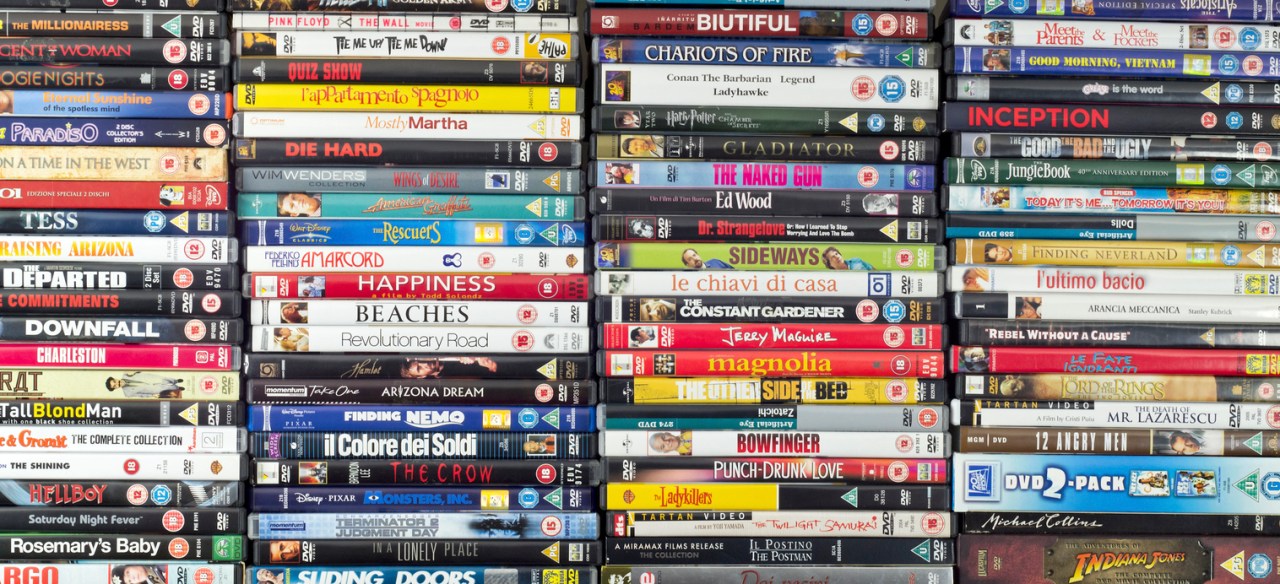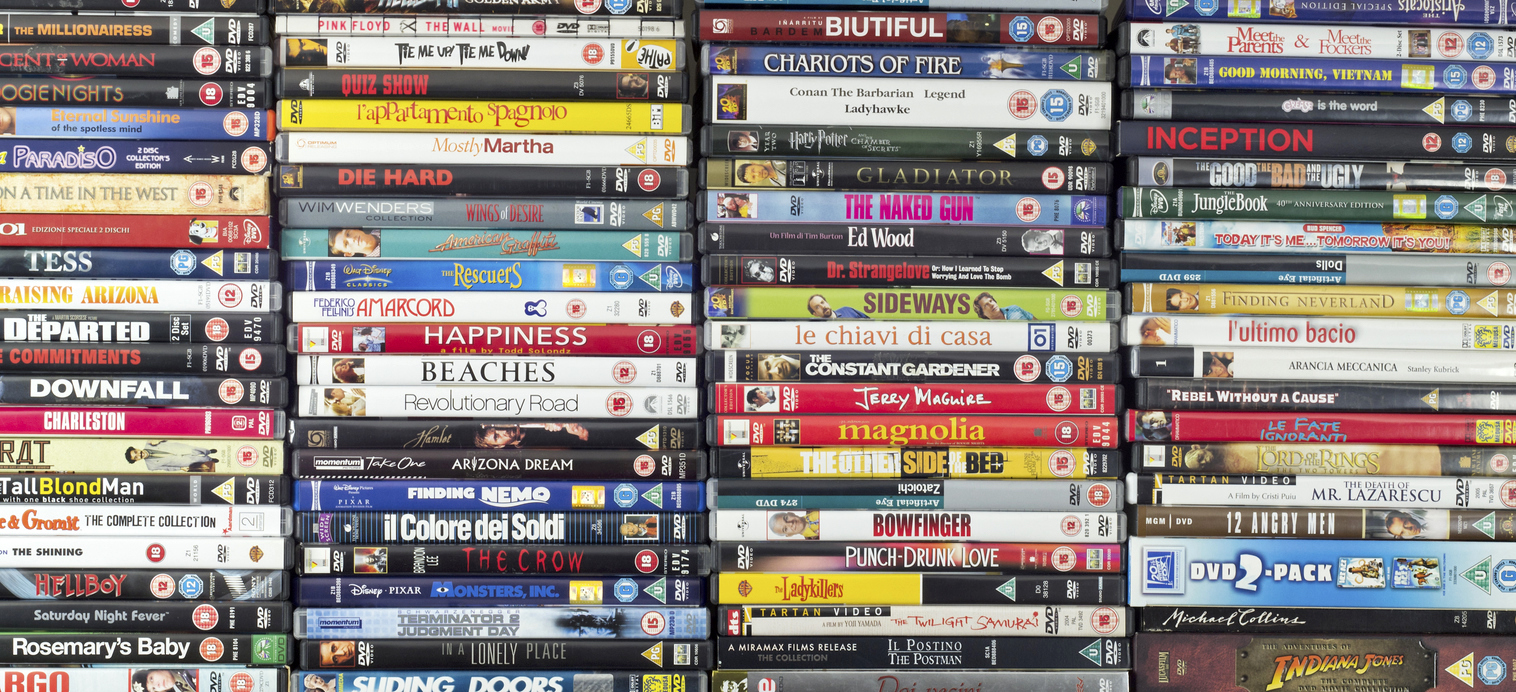One small but significant loss to culture that streaming sites like Netflix or Amazon Prime have ushered in is the slow death of the DVD commentary. Usually given by a film’s actors or director (or both), they could be played over the film and were packed with insights on filmmaking, the artists’ take on life or simply acute observations of human psychology. Masterclasses from people like Tarantino, Scorsese, Gary Oldman or Sharon Stone, DVD commentaries were, as Alexander Larman (of this parish) pointed out in a 2020 essay, often fascinating and ‘far cheaper and even more comprehensive than a film school degree.’ Their emergence, in fact, softened the blow of programmes like The South Bank Show and Arena (and what they represented) being sidelined so much in British cultural life. I decided to go back to a trio of them – chosen out of many – that have stuck with me over the years.
The whole enterprise – and that actor’s snub to the Stasi – might be summed by Goethe’s maxim: ‘Be bold – mighty forces will come to your aid’
The first was Max, Menno Meyjes’ criminally underrated 2002 drama about Hitler’s relationship with a Jewish art dealer in post-world war one Munich – a time of angst and exhaustion, soup kitchens and amputees, and a radicalism in politics out to crack skulls. It’s a culture that’s died and is waiting for rebirth, a vacuum into which come artists like the rampantly creative Max Ernst and George Grosz, or anti-Semitic demagogues like Hitler. Meyjes’s film may seem at times like a love letter to Europe (the Dutch-born director left as a child for the US) but it’s also clear-eyed about a continent whose spirit he describes as ‘so weary, so bitter, so cynical, so sad.’ Europe could produce Bauhaus, Freud and Picasso, but also Mussolini’s Blackshirts and the smokestacks of Treblinka.
This isn’t a commentary that will tell you huge amounts about filmmaking. Yet along with a lightly offered history lesson on Germany between the wars, it’s also a paean to his actors. Meyjes enthuses about the inventiveness of actress Molly Parker – ‘acting goddess’ – or how another performer, with next to no lines, creates a living character almost entirely with the eyes. But it’s mainly John Cusack’s bravura as art-dealer Max which Meyjes makes the case for. In a bleak opening scene, he points out how much tension the actor is able to evoke by ‘just sitting there.’ Catch the ‘greatest dead look’, he tells us, in war veteran Max’s eyes, or the wonders Cusack achieves with pages of dry dialogue about art: ‘He made the scene fly.’ In Max’s first meeting with Hitler – a craven, wizened Noah Taylor – you realise what a good listener Cusack is onscreen, how his conversations are never just a matter of hearing and replying but visibly thinking, simultaneously, a haze of his own thoughts. The actor – one that many of us who grew up in the eighties retain a soft spot for – has never been better than here, though it takes Meyjes to break down why.
The second is also a movie set in Germany, Florian Henckel von Donnersmarck’s debut feature The Lives of Others. A film from 2006 about love, betrayal and redemption, it showed a communist East Germany micromanaged by the Stasi secret police, whose avowed aim is to ‘know everything’ about its citizens.
Von Donnersmarck, a 6ft 7in friendly giant from Cologne, makes the liveliest and warmest of guides. Like Meyjes, he’s half in love with his actors, and keen to tell you how much personal experience the older ones had of the surveillance nightmare the film describes. Lead actor Ulrich Muhe, reading his own Stasi file after the system fell apart in 1989, discovered that not only had four members of his theatre troupe been spying on him, but the mother of his child had as well. Volkmar Kleinert (playing a banned theatre director) was put under enormous pressure as a young actor to spy for the Stasi – ‘we can make your career happen for you’ – and given a day or two to mull over his decision. His final, shrieking rebuff to them brought, to his amazement, no reprisals at all, demonstrating for von Donnersmarck a lesson about integrity in life and its possible results.
It’s an apt one for this film. Much of von Donnersmarck’s commentary is about the obstacles he faced getting it made and the extent to which he was willing to fight for scenes or pester the artists he wanted (some of whom would have to work for 20 per cent of their usual pay). We hear about his phoning a well-known actor day after day to get him to play a non-speaking part, or spending a month translating his script into French to secure the services of composer Gabriel Yared. The entire movie – which cinemas were reluctant to take but ended up winning an Oscar for best foreign picture – sounds like a gruelling struggle from start to finish. It took him three years to write and research and so despondent at times was von Donnersmarck, he set one of The Lives’ most traumatic scenes on the same street as his writing bolthole. It all reminds you that making a film – perhaps making anything – can be a terrible creative journey, with infinite rewards. The whole enterprise – and that actor’s snub to the Stasi might be summed by Goethe’s maxim: ‘Be bold – mighty forces will come to your aid.’
The third film is Talented Mr Ripley, Anthony Minghella’s 1999 psychological thriller based on Patricia Highsmith’s novel about obsession, betrayal, revenge and shifting identity, set in 1950s Italy. Nobody does DVD commentaries like Minghella, who’s both ready to share his expertise and, if necessary, his emotional wounds as well. You can learn huge amounts about filmmaking just from listening to him here. How do you foreshadow events in a script? What are the changes you might need to make to bring a novel to the screen? How can you make symbolism serve your themes or use costume to show character progression? Minghella’s passion for the art is infectious.
But his commentary sticks in the mind for other reasons. In this tale – spoiler alert – of a Bach-loving naif invited into a world of pleasure and beauty and then callously cast out of it (making him a murderer in the process), many will draw back from such a creepy, amoral leading character (a career-best performance by Matt Damon). But unlike Highsmith, Minghella shows a generosity towards Ripley that shines through, both in the script and his remarks on it. More than one scene of Ripley’s abasement is described by Minghella as ‘written from the heart’, and throughout there’s an empathy with this damaged, dangerous central character which is its own moral message. ‘I wanted to find out what was human and familiar about Ripley,’ he explains, ‘what we can all recognise… We all have a tiny piece of Ripley in our hearts, thinking there’s a better life to be had, if only we were someone else.’ This too is a lesson for the dramatist – perhaps for all of us – and The Talented Mr Ripley’s commentary, like the film itself, is a must.







Comments